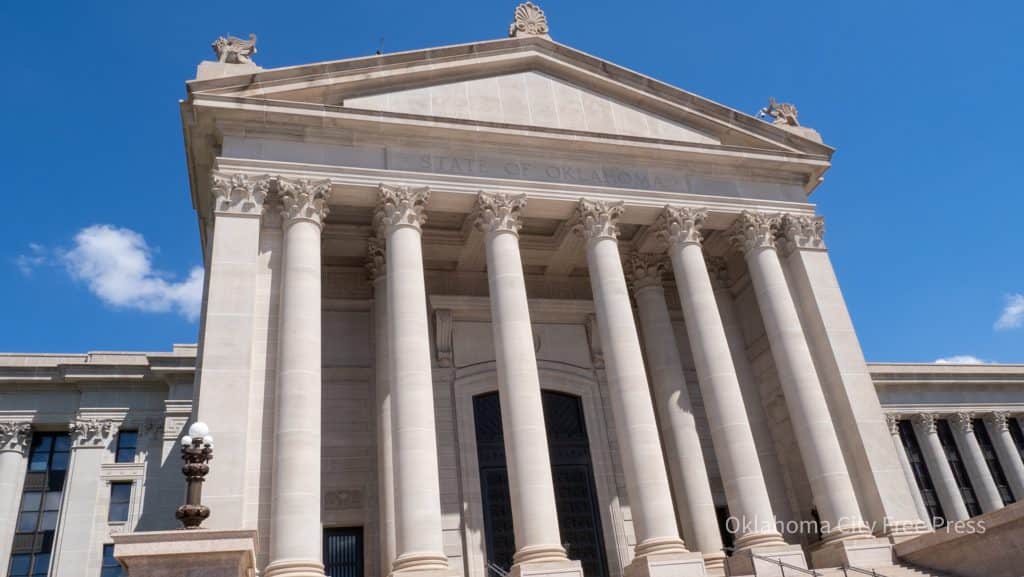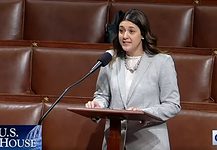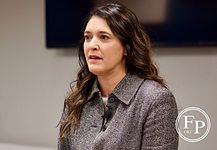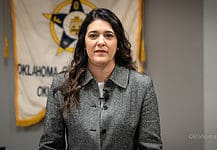Last Updated on February 18, 2023, 9:58 PM | Published: February 18, 2023
If Oklahomans do not vote for and pass State Question 820, which would make recreational marijuana legal, it will be a signal to the state’s conservative leadership that it can start restricting state questions and, in a real way, take away one of our state’s best protections against itself and stifle the voice of Oklahoma voters in the future.
How do we know? They already tried last year, and they are doing it again this year.
Republished in partnership with Oklahoma Voice under Creative Commons license CC BY-NC-ND 4.0. Oklahoma Voice is a part of States Newsroom which is a nonprofit news network supported by grants and a coalition of donors as a 501c(3) public charity. Oklahoma Voice maintains editorial independence. Contact Editor Janelle Stecklein for questions: [email protected]. Follow Oklahoma Voice on Facebook and Twitter.

Last spring, a package of bills led by House Joint Resolution 1002, which would require initiative petitions to collect a set number of signatures from all 77 Oklahoma counties, failed to meet their legislative deadline.
In 2023, Republican politicians in Oklahoma have grown to hate initiative petitions and their resulting state questions, because they are a purer expression of the people’s will these days than votes in the legislature. And because Oklahoma approved progressive state questions on medical marijuana, Medicaid expansion and reducing sentencing for certain drug offenses in the past five years, Republicans are doing their level best to neutralize state questions.
State Sen. Warren Hamilton, R-McCurtain, is doing his best to undermine democracy in the new term.
Hamilton is the lead sponsor of Senate Joint Resolution 5, a sulfurous piece of pure evil legislation. The resolution would limit state questions to odd-numbered years, but it “would require a proposed constitutional amendment or state question that removes a right of residents of this state to receive a majority vote of electors statewide and a majority vote of electors in two-thirds of the counties to take effect.”
Let’s unpack this joint resolution. Hamilton is proposing the odd-years requirement to eliminate any coattail effect for progressive state questions. This is probably why SQ 820’s verification process was slow-walked by the Stitt Administration last year – if it appeared on the Nov. 8, 2022 general election ballot, a large turnout in favor of recreational marijuana could have endangered Stitt’s reelection and maybe even Hamilton’s own reelection bid.
But, if you require state questions to only pop up on ballots in odd years, they do not have knock-on effects on election day for politicians who oppose the question or are simply unpopular with the voters showing up for the question. It’s a grossly self-serving bill for Hamilton and his ilk, on top of the likely outcome that no state question will ever pass if SJR 5 goes through.
Thanks to Fox News, the anti-facts platform of the Trump Administration and their current adherents, it is impossible to get anything close to consensus in the electorate. People cannot agree on the color of the sky anymore. Hamilton’s resolution bumps up the requirement for passage of a state question in Oklahoma from a simple majority to a whopping 66 percent.
That adds 16 percent to the requirement for victory, the same required to override a veto in the U.S. Senate. Since 1789, American presidents have vetoed legislation 1,484 times, and only 7.1 percent, or 106 of those vetoes were successfully overridden. Hamilton wants to make it that hard for Oklahomans to change their own constitution.
Through gerrymandering and syndicated legislation from the American Legislative Exchange Council (ALEC) and the Citizens United decision, among a cornucopia of anti-democratic measures, conservatives have basically ruined representative democracy in America.
Trying to make state questions a near impossibility is pouring salted alcohol in the wound.
George Lang has worked as an award-winning professional journalist in Oklahoma City for over 25 years and is the professional opinion columnist for Free Press. His work has been published in a number of local publications covering a wide range of subjects including politics, media, entertainment and others. George lives in Oklahoma City with his wife and son.











